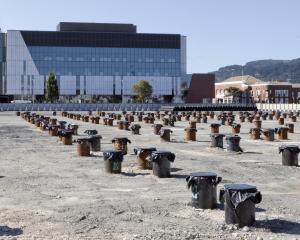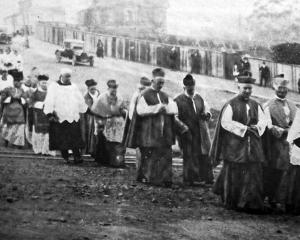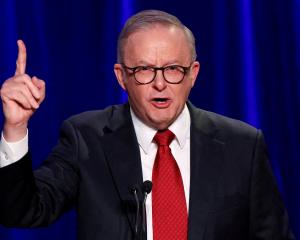It has become a mantra that the country's economic growth agenda relies in large part upon the rapid roll-out of the Government's Ultra Fast Broadband (UFB) project.
While there are certainly indications - research, projections, educated guesswork - that being "connected" in a manner which allows for the reciprocal high-speed transfer of large packets of information nationally and internationally will indeed be an integral and necessary component of an agile, progressive 21st-century economy, it is possible to overstate the case.
Sometimes the fervour is reminiscent of that other great panacea of the "noughties" - the Knowledge Wave. Time has proven once again that primary produce, most particularly in the dairy sector, has been the mainstay of the New Zealand economy, and looks like continuing to be so in the foreseeable future.
And while the dairy industry, like most others, will benefit from the communications enhancements UFB will offer, it is exported milk products that will largely pay for them.
Nonetheless, trimmed of the accompanying hype, the announcement last week by Communications and Information Minister Steven Joyce of the first deals agreed in the rollout of UFB, and of the preferred delivery companies for the rest of the country this week, is to be welcomed.
Progress is being made in putting the country on a footing with other OECD nations, a development that will assist the competitiveness of exporters in tough international markets, and the efficiency of contributors to the domestic economy.
The cities of Tauranga, Whangarei, New Plymouth and Wanganui will be among the first to benefit, along with Hamilton, Cambridge, Te Awamutu, Tokoroa and Hawera.
Overall, the UFB project will see 75% of New Zealand covered by 2019. Last week's announcement - identifying two separate delivery partners tasked with introducing the UFB - represents almost 16% of UFB premises and a combined value of more than $200 million.
In these cities it will open up significant opportunities for the provision of new online services and improved existing services, including high-speed video delivery, video conferencing and e-health options.
This week's announcement identifies Telecom for 25 areas, Enable Networks for Christchurch and Rangiora and Flute Joint Venture, represented by Aurora Energy Limited, covering Dunedin. Scope remains for further partnership or alignments.
If there are elements of disquiet in the wake of the announcement, these primarily concern uncertainty over pricing and competition. Delivery of high-speed broadband to households and other premises will be achieved through entities called Local Fibre Companies.
These will be partnerships between Crown Fibre Holdings (CFH), which is overseeing the project on behalf of the Government, and the company selected to "deploy, own and operate a fibre-to-premises network in one or more urban areas" of the country.
There will be only one of these LFCs per region, so in effect there will be no competition between providers; price competitiveness will be achieved through the tender process and regulated by contract between CFH and the LFC partner.
How effective this will prove is another matter and already the pricing structures give rise to some concern.
Published indicative "wholesale" prices of $40 per month for an entry level "product" neither include GST nor factor in retail service provider costs, so at present the end user must remain in the dark as to potential outlay.
There is also the concern that Telecom, should it prevail as the chosen partner in 25 or more areas - it is still possible that it could be involved in both Christchurch and Dunedin - with effectively about 80%-86% of the market could exercise monopolistic control over aspects of the country's future communications network.
Telecom, in partnership with Vodafone, has also had its Rural Broadband Initiative proposal shortlisted, along with two other parties.
There are obvious economies of scale in having a structurally separated Telecom delivering a fibre network through Chorus.
But some critics will point to the company's past chequered investment record in the national copper wire infrastructure - and to the overseas destinations of a large percentage of its profits.
Mr Joyce will want to tread carefully over this last stage of his $1.5 billion broadband project and ensure that sufficient investment and consumer protection safeguards are built in to the final negotiations.












